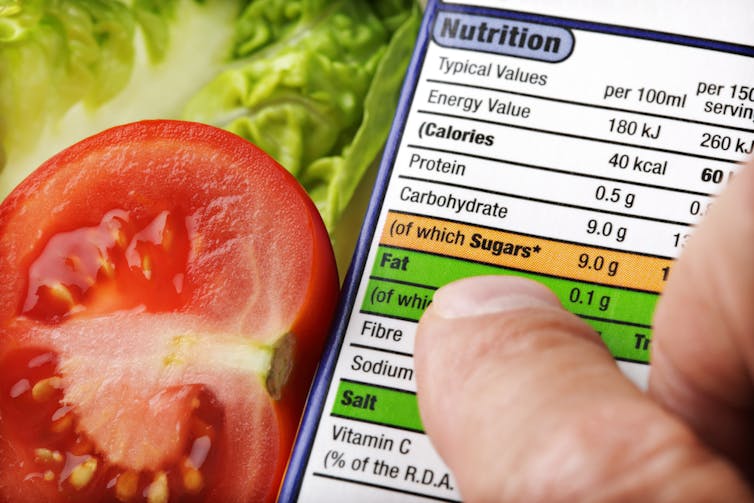First-year uni can add 4kg to your weight. Here's how universities can scale that back
- Written by Dr Rajshri Roy, Lecturer in Nutrition and Dietetics, University of Auckland
Students typically gain weight in their first year of university. There are expressions to reflect this knowledge, such as the “freshman 15” in North America (which assumes students gain 15 pounds, or around 8kg) and “freshman fatties” or “fresher five” in Australia and New Zealand.
Studies have confirmed the weight gain as fact, although the amount gained is, on average, lower than rumoured – university students can gain up to 4kg in their first year. Reasons for the weight gain include changes in lifestyle, poor physical activity and unhealthy dietary behaviours – particularly food choices and stress or comfort eating.
Most university students are young adults (aged 18-35) who spend a lot of time on campus. Young adults may be particularly vulnerable to features of the university food environment, such as the cost and portion size of food, as they usually have lower disposable incomes.
 Most university students spend a lot of time on campus.
from shutterstock.com
Most university students spend a lot of time on campus.
from shutterstock.com
Studies also show young adults tend to have a higher intake of energy-dense, nutrient-poor foods and drinks than older adults. This includes sugary soft drinks, fried potatoes, meat pies and savoury pastries, pizza, crisps and confectionery.
Why are universities responsible?
Obesity is a public health issues with two-thirds of Australian adults being obese or overweight. There is also a strong association between healthy eating and better mental-health outcomes and well-being.
Our recently published study of food outlets in six campuses of a large university found healthy food was less available, accessible and promoted. It also cost more than unhealthy food. Similar studies have found much the same thing.
The majority of staff and students who completed a survey (79%) in our study had bought food and drinks on campus. Their food choices were determined by value for money, taste and the food’s health value. Staff and students suggested increasing the value for money of food and providing healthier options.
Universities have a responsibility to provide a food environment where young adults can make healthier choices. Universities should also be encouraging students to eat and be healthier.
Read more: Want to improve your mood? It's time to ditch the junk food
A study that looked at trials to improve healthy eating among university students across the US and Europe found effective interventions included increasing the availability of healthy food choices and making healthy food options more prominent.
Here are five things universities can do to help students eat better.
1. Increase the availability of healthy food choices
Research shows people eat what is available. So, modifying the foods available to young adults can improve their dietary behaviour.
Interventions that have been successful in improving student dietary behaviour include:
- having vending machines with no sugary drinks
- making self-serve tap water available with all meals
- decreasing the portion size of unhealthy foods. This could include offering half-size or mini-size serves of meals, snacks and drinks or halving the portion sizes of hot chips.
2. Educate consumers about healthy food choices
Studies that have looked at factors that influence dietary behaviour changes encourage a combination of education and an increased availability of healthy foods.
Our study found staff and students want healthy foods to be available on campus. But it also found the healthier snacks such as nuts, fruits and muesli or cereal bars were rarely consumed.
One way to help consumers choose healthier options is to promote healthy food and drinks by indicating their energy content, as well as adding labels to highlight which are better for you. Promoting healthier options on menus, boards and labels, and not promoting the less healthy items, such as deep-fried foods or sugary drinks, has been effective in universities.
 Educating people about healthy choices includes letting them know the amount of energy or fat a food item contains.
from shutterstock.com
Educating people about healthy choices includes letting them know the amount of energy or fat a food item contains.
from shutterstock.com
3. Reduce the price of healthy foods
A number of studies have been conducted in the workplace and school environments.
These show increasing the price of unhealthy foods by 10% and reducing the price of healthy foods by 10% improves people’s eating habits. Such price reductions and increases could be a viable solution to the on-campus food environment.
Incentives also improve dietary behaviour. These can come in the form of including fruit, vegetable or salad items in the cost of every meal and snack, and/or including healthier items in meal deals.
4. Put healthier foods in a prominent place
A recent review of several studies that evaluated health-promotion programs in workplaces found the placement of fruit, vegetables and fatty foods in prominent locations increases the likelihood of people buying them.
Read more: Choosing healthy food: your surroundings can help or hinder your dining choices
Placing healthier items in visible areas can include putting a fruit bowl next to the cash register, placing free water stations throughout the campus and placing healthier food options at eye level in fridges and vending machines.
5. Have healthy guidelines for catering at university events
Universities should seek the expertise of nutrition academics to develop guidelines that can assist caterers, staff and students to choose and serve healthier food and beverages at university events. Catering guidelines are available for workplaces in states such as Victoria. They are evidence-based and are available online for all workplaces including universities.
Every university should have access to similar guidelines, which can comprise checklists for caterers, suggested menu items and nutrition tips of event organisers.
Authors: Dr Rajshri Roy, Lecturer in Nutrition and Dietetics, University of Auckland



















